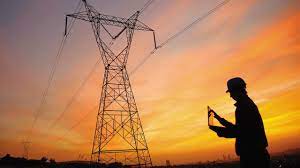Space Forge, a Welsh firm, will employ microgravity and the space vacuum to produce stronger, lighter metal alloys and ultra-efficient semiconductors.
The Spaceport will provide a huge economic boost to Cornwall, one of the poorest places in the United Kingdom.
Later this summer, the first rocket to fly from British soil will carry a prototype space factory capable of producing materials hard to produce on Earth.

Components manufactured in space might be utilized in anything from aircraft engines to the electrical grid over the next five years, according to the business.
The business will launch a satellite in September from Spaceport Cornwall to test its method for bringing materials back to Earth.

The first spaceport in Europe is located at Newquay Airport.
A Virgin Orbit Boeing 747 will take off from the same runway as commercial passenger jets, carry a rocket under its wing, and release it at an altitude of 35,000 feet.
Andrew Bacon, the co-founder of Space Forge, stated that the launch will transform the United Kingdom into a “real space superpower” capable of producing and deploying world-class satellite technology.
“The cost of launch has decreased drastically,” he remarked. “It used to often cost $20,000 (£16,500) per kilogram. Currently, you can pay as little as $1,000 (£830).
Some materials are significantly more valuable. The kilogram of nickel-based alloys used in aviation turbines can cost up to $100,000. Therefore, the economics (of space manufacturing) begin to work as a result of the steep decline in launch costs.”
Although other firms have created and returned limited quantities of materials to Earth, Space Forge will be the first to do so in commercial quantities.
Using still-classified technology, the entire satellite will be hauled down, reconditioned, and relaunched with a fresh supply of raw materials.
Mr. Bacon stated, “The ability to launch from your nation will make a significant impact.”
If you want to develop a stable, sustainable supply chain centered in space, you can’t fly halfway around the world to obtain the ingredients you need to create something.
“You wish to launch and return to this location to utilize these products where they are required.”
Between California and Newquay
Up to ten satellites, some commercial and some military, are anticipated to be aboard the initial launch, slated for September 8.
Cosmic Girl, a plane operated by Virgin Orbit, will take off from Newquay Airport carrying LauncherOne, a 21-meter rocket, beneath its left wing.
Once the plane is well clear of land and at the proper height, the pilot will raise the nose and release the rocket, which will fire its engine and take off on the ideal trajectory for placing satellites in an orbit that passes over the north and south poles.
“Because we have recycled the aircraft, it is a vital component of our launch infrastructure,” he explained.
“It propels the rocket to 35,000 feet, a majority of Mach 1 (nearly the speed of sound), and two-thirds of the way through the atmosphere before the rocket needs to perform any work.”
Newquay will be the first launch location outside of California for the corporation.
The United Kingdom is a “heavyweight” in the construction of tiny satellites.
Mr. Hart stated that the United Kingdom was attractive due to its “technology and aspiration” to become a space nation.
Currently, two further traditional “vertical-launch” spaceports are seeking authorization on the Scottish mainland and the Shetland Islands.
However, Spaceport Cornwall asserts that “horizontal-launch” with rockets carried on aircraft using a commercial airport minimizes infrastructure and costs.
Melissa Thorpe, director of the spaceport, stated that the United Kingdom was a “heavyweight” when it comes to the construction of tiny satellites, but had previously had to ship them abroad for launch.
In the aftermath of the Ukraine incursion, the British-Indian corporation OneWeb had a launch of 36 broadband satellites on a Russian rocket canceled at the last minute.
Ms. Thorpe stated, “We do not have a great deal of control over how satellites are launched, who launches them, and where they are launched from, as well as the activities that take on in some of these sites.
“Therefore, it is essential for us to help establish a sovereign launch capability, in which satellites are driven to a spaceport and launched more transparently.”
The Spaceport will provide a huge economic boost to Cornwall, one of the poorest places in the United Kingdom.
The company anticipates employing 150 people directly and 240 in its supply chain. Additionally, several industries aim to establish facilities near the airport to form a space cluster.












































